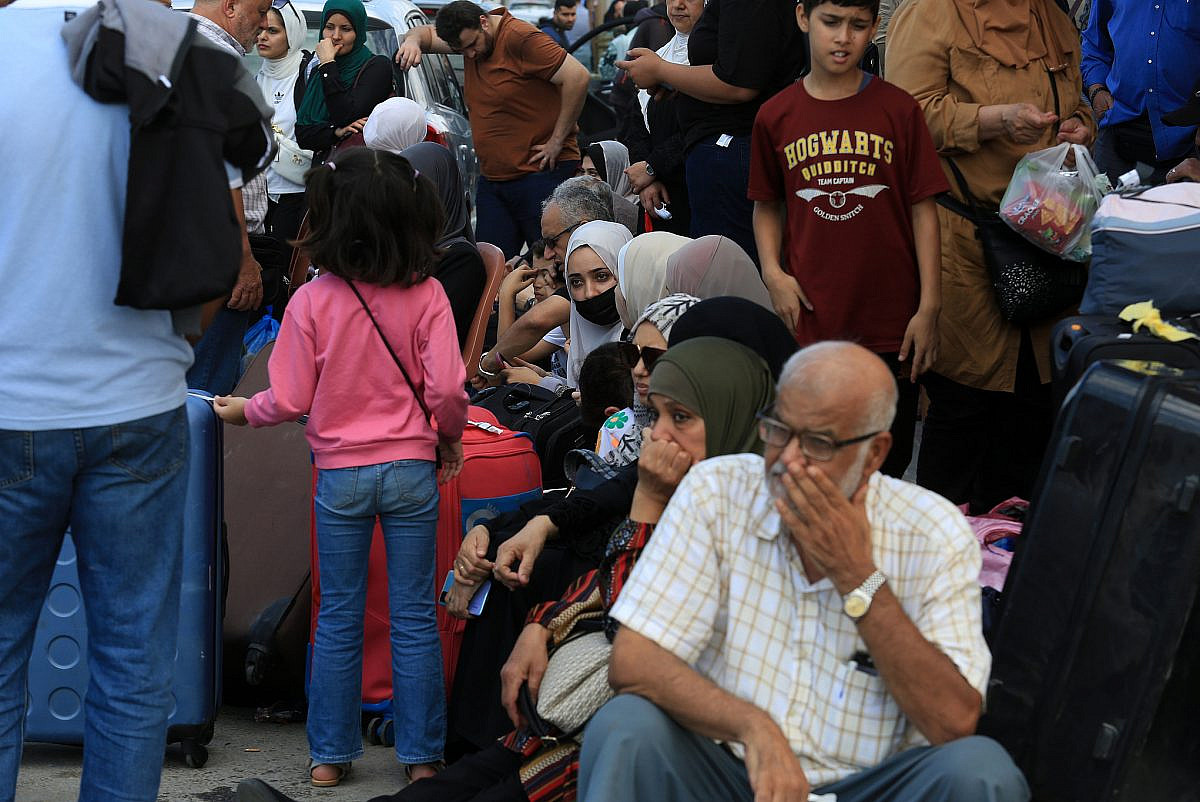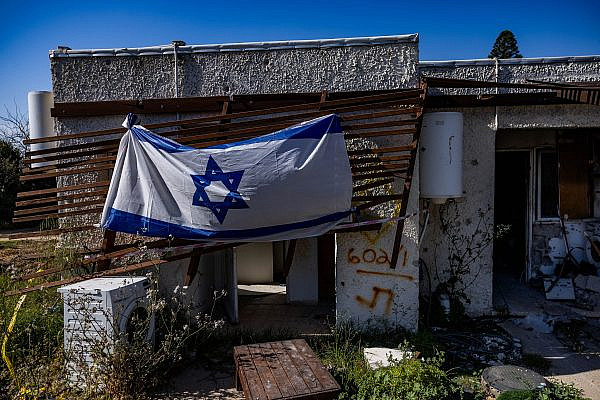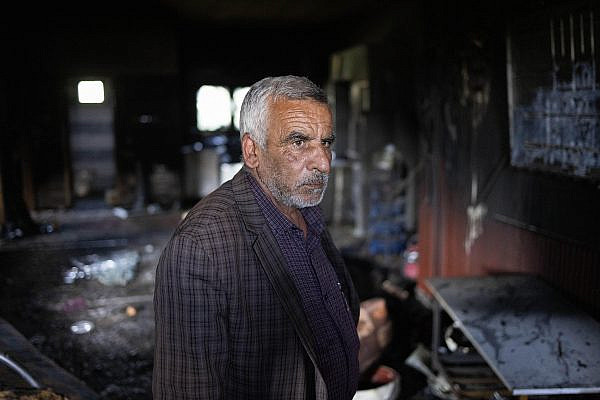With Israel’s bombardment of Gaza in its fourth week, there have been countless stories of Palestinian families fleeing from one part of the strip to another to try and find refuge from the airstrikes, and countless more of others choosing or having no choice but to remain where they are, despite the dangers. Yet little attention has been paid to those Gaza residents left stranded outside the Strip since Oct. 7, in particular those in neighboring Egypt.
Thousands of Gazans are trapped on the Egyptian side of the Rafah crossing on the Strip’s southern border — a crossing which, according to Egyptian officials, has been rendered “inoperable” by Israeli bombing. Bar a trickle of aid trucks in recent days, there has essentially been no movement at the Gaza-Egypt border, leaving the Palestinians stuck on the Egyptian side anxious and distraught over what is happening to their homes and their families while they are away.
Yassin Abu Odeh, a 37-year-old from Al-Shati refugee camp in Gaza City who works in the Palestinian Working Woman Society for Development, has been stranded in Cairo since attending a workshop before the war broke out. He is now separated from his four children, his wife, and the rest of his family, wondering about how they are coping.
“Memories of war are painful,” Abu Odeh said. “In every war, we experience a painful story with our children. I think about my children day and night. How do they feel now under the intense bombing? Do they have what they need or not? Who will give them the psychological support that I provided to them during past wars?”
Due to communications blackouts, Abu Odeh has struggled to stay in contact with his family. “I live in anxiety. I do not eat well. I do nothing but follow the news and cry at the scenes of the children. I feel very afraid for my children.”
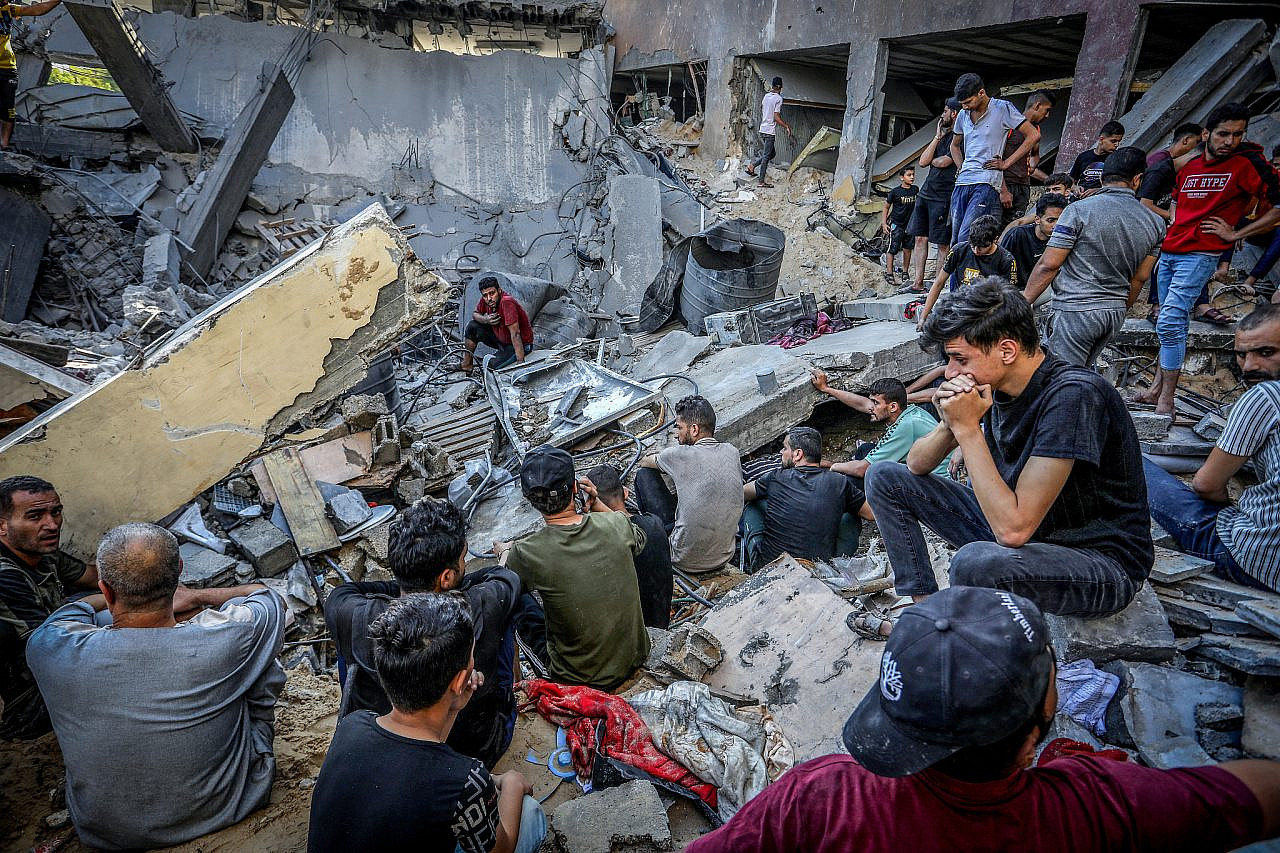
Abu Odeh is still haunted by the children in Gaza who were killed during the 2021 war. “I thought about how to save my children from the war, even if it was some of them, not all of them. That’s why I exchanged half of my children with my brother, and he gave me three of his children so that we wouldn’t lose all of our children in the war. This is a traumatized idea that we had, which the occupation’s policy of killing forced us to think about it. This idea spread among citizens and many families did the same thing.”
Seeing on the news what is happening to children in Gaza has deepened Abu Odeh’s distress. “I cannot believe that there are hundreds of children arriving at the hospital, in pieces and with no identity,” he said. “No one can recognize them. How do their parents feel? What our children are experiencing in Gaza is heartbreaking. Every war has a difficult story. I spoke with my children and they told me that they wrote their names [on their arms] so that the world would know them [if they were killed].”
‘Our people need us’
Ghaida Qadeeh, 29, from the town of Khuza’a, east of Khan Younis, traveled to Egypt several weeks before the war in order to attend workshops on a dream project that she has been working on with friends for almost a year. Her daughter, husband, and the rest of her family stayed behind in Gaza.
After she arrived in Egypt, she said, “suddenly news started coming from Gaza that there is a difficult war [taking place]. What I see in the news is catastrophic. I tried to contact my family at the beginning of the war, and they told me that they wanted to flee to UNRWA schools in the center of the city of Khan Younis, because the eastern area of the city is a border area and dangerous during the war.
“My 2-year-old little girl went with my mother who needs care and attention,” Qadeeh said. “Things are very difficult for my mother, [who has] to take care of herself, my daughter, my sisters, and others.”
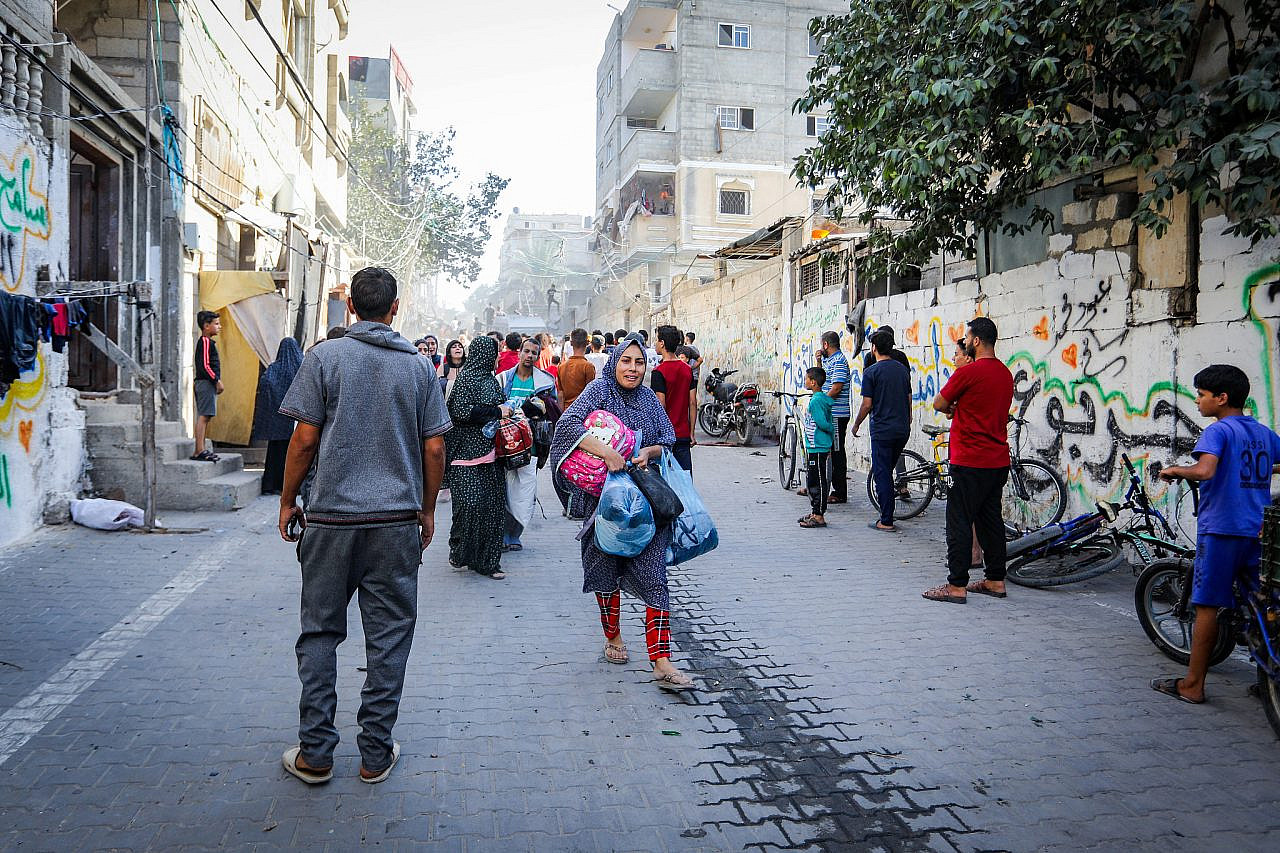
Qadeeh added that the hardest thing for her is being away from her family and struggling to maintain contact with them in such dire circumstances. “They do not have the internet, and communication is very difficult with them,” she explained. “I talk to them for a few minutes just to check they are OK.
“The news coming from there is sad. [Israel is] destroying everything. Many friends and family members were martyred in this war, and we do not know when it will end. Our people need us and I do not want to lose anyone from my family. I cry day and night over the scenes I see from Gaza and imagine my family who live in these difficult circumstances. I do not know when we will live our lives normally like [the rest of] the world.”
Musa Mansour, a 60-year-old from Bureij refugee camp in central Gaza, traveled to Egypt with his wife, Naima Khader, for medical treatment on his spine. He had planned to return to Gaza during the first week of the war, but was unable to go back due to the bombing.
“I contact my children to check on them and they tell me to just pray for them,” he said. “The scenes from Gaza are painful. I cannot imagine my children living this war without their father by their side. My grandchildren are very young and the bombing is everywhere; there are no exceptions. I cannot rest without contacting my children, and it is difficult to reach them. Sometimes, the day ends without me knowing anything about them.”
Most read on +972
The stress of being separated from his children has worsened Mansour’s medical condition, he explained. “I do not feel that I have benefited from the treatment. I do not feel well. I have severe heart pains because of my fear and anxiety for my children. We have lost many neighbors and family members. I feel that everything in Gaza is being targeted. There is no electricity, water, or internet, and the connection is also bad. I try dozens of times a day to talk to one of my children, but I cannot. I feel like there is a burning fire inside me of fear and deep anxiety.”
Khader, 56, Mansour’s wife, is also anxiety-ridden. “I cannot sleep. My mind does not stop thinking about my children and grandchildren in Gaza. I wish I had known that there [would be] a war when I left Gaza, I wish that I had never gone through this tough experience. I feel like rockets are falling around me. The images of children, women, and destruction are very painful.
“A home without a mother in these difficult circumstances cannot be a good thing,” she continued. “I went with my husband for treatment, but we feel more severe pain and fear for our children and families in Gaza.”

